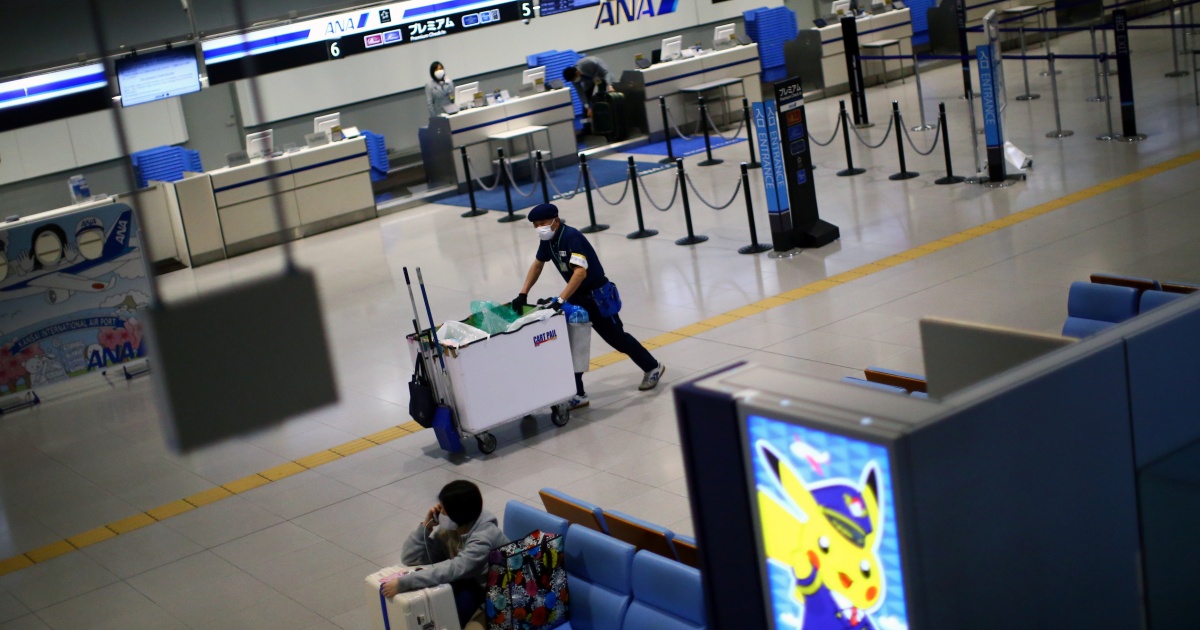Japanese Border Restrictions Have Sparked Demonstrations Worldwide
Pablo Ortez resigned from his work, sold his belongings, and prepared to join his wife in Japan but found out 72 hours before his departure that the Japanese government had placed a travel ban. After calling them, the embassy informed him that he couldn’t fly, and now, he’s moved in with his mother and doesn’t know when he can be reunited with his wife.
Japan’s new travel restrictions have affected tens of thousands of people, including international students, guest workers, and technical interns. Except for Japanese nationals and returning foreign residents, the new laws apply to all recent newcomers, which began at the end of November.
The World Health Organization has recommended countries not to enforce blanket travel bans, claiming that they are inefficient at limiting virus spread and causing economic and social hardship. Lewis Hussey, 26, argues that the Japanese government’s conflicting and unreasonable attitude has cost him the opportunity to study abroad. “It’s disappointing,” remarked Hussey.
American student Lewis Hussey.
Throughout the outbreak, Japan has enforced substantial travel restrictions, with attempts to loosen them rapidly undone by waves of illnesses. The one exception was last summer’s Olympics in Tokyo, which drew huge numbers of participants, officials, and journalists. To relieve strain on healthcare institutions, large swaths of the country, including Tokyo, has declared a state of emergency the previous weekend.
The restriction is prolonged until the end of January, but businesswoman Jade Barry is concerned that it could be stretched much further. “I was crushed,” said Barry, who lives near Chicago.
Jade Barry: ‘I have been in love with Japan since I was little.’ Photograph: handout
“Since I was a child, I’ve had a warm place for Japan. Expanding my hairpiece business there allowed me to fulfill my ultimate goal of settling down and raising a family there. I still think it’s a great country, but being barred for so long has turned me against the authorities.”, she continues.
Left-behind students receive little compassion from Japanese policymakers, but as more students move to other nations, notably economic rivals like South Korea, the restriction stifles innovation. However, businessmen feel sympathetic towards students and argue that the long-term border restrictions harshly affect the economy.
Hiroshi Mikitani, CEO of Rakuten
Hiroshi Mikitani, CEO of Rakuten, compares the prohibition to the isolation caused by the “closed country” policy of the Edo period’s isolated states (1603-1868). Mikitani asked on the day Kishida reinstated the limits, “Would you desire to isolate Japan from the rest of the world?”
Hundreds of academics and specialists on Japan-US relations have urged Prime Minister Fumio Kishida to loosen border controls. However, that seems to be ineffective as 88% of people living in Japan currently think that the measure was appropriate. “What’s most frustrating is that I don’t see a way out,” Vilhelm, who declined to reveal his full name, added. “I’ve put a lot of money into studying in Japan, and I believe it’s mistreating me.” “I still have a thing for Japan, but I’m not sure why.”
Students and other stranded individuals have taken to social media to support a campaign to repeal the restrictions, with rallies planned outside Japanese embassies later this month.
A woman in India whose husband is in Japan. Photograph: handout
“Having your chance to visit Japan stolen away is devastating. I can’t imagine how difficult it is to be separated from your child due to border restrictions. The ambiguity cannot be allowed any longer. As a result, people’s lives are being devastated.”
In response to mounting criticism, the administration slightly expanded the entryway. According to the senior cabinet secretary, Hirokazu Matsuno, 87 students on government scholarships will enroll in February. However, over 150,000 people have been waiting for up to two years to begin their education, most of whom are self-funded.
Source: The Guardian
Also read about Japan To Ease Border Restrictions For International Students
